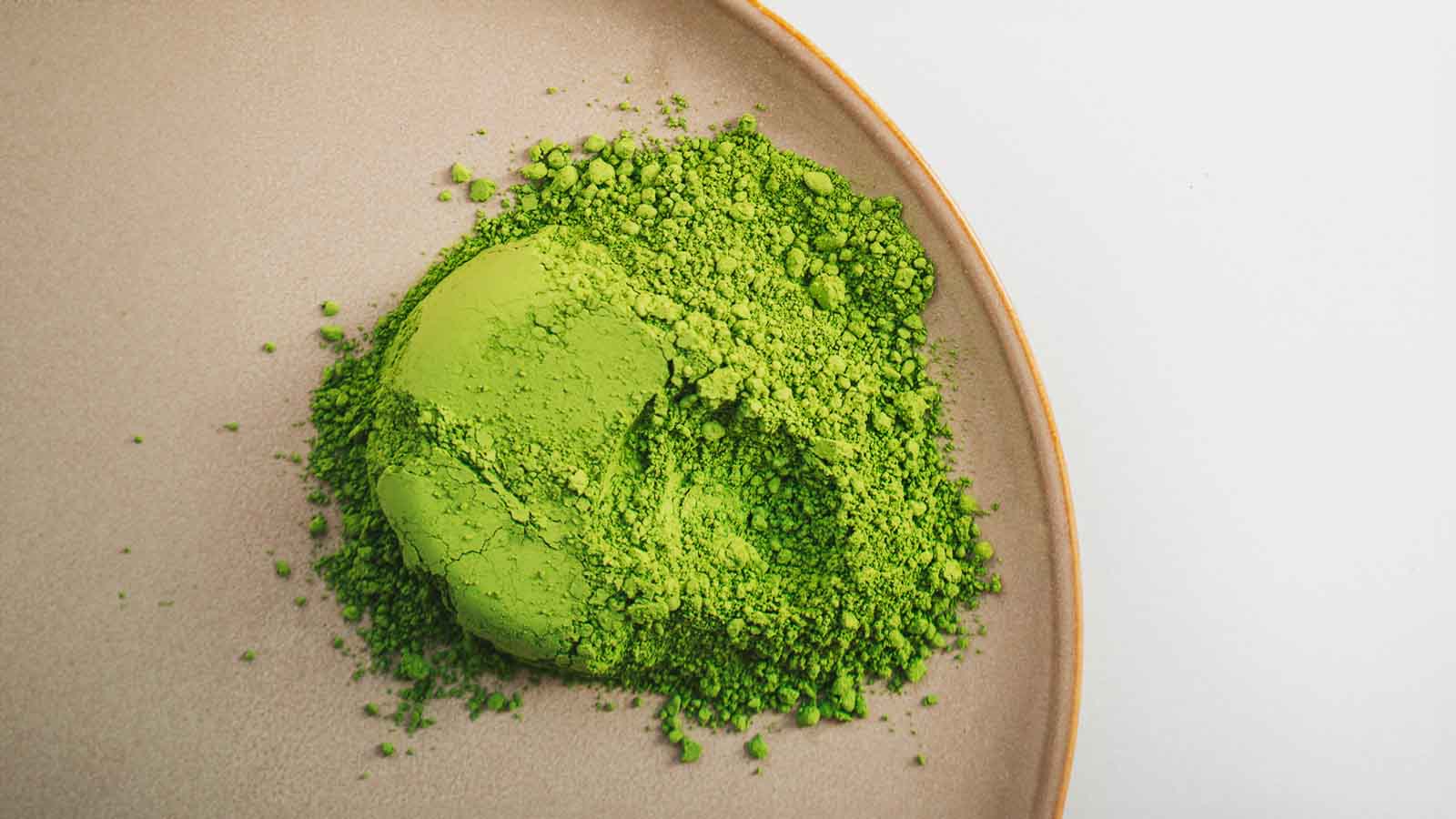Table of contents:
Matcha is unique due to its high concentration of bioactive compounds, which are the result of the special cultivation and production process. Here is an overview of the main ingredients and their health benefits:
Catechins (especially EGCG)
Catechins are polyphenols with powerful antioxidant properties. Matcha contains four main catechins: epicatechin, epicatechin gallate, epigallocatechin and epigallocatechin gallate (EGCG), the latter being the most abundant and having the most powerful antioxidant activity². These compounds play a key role in neutralizing free radicals and protecting cells from oxidative stress, which can cause diseases such as cancer and heart disease².
Kaffeine
Matcha contains more caffeine than regular green tea, which makes it a good source of energy. At the same time, the L-theanine contained in Matcha ensures that the caffeine effect is gentle and long-lasting, without nervousness or the typical "crash" after consuming caffeine¹. Caffeine also promotes fat metabolism and increases physical performance².
L-theanine
L-theanine is an amino acid found in high concentrations in Matcha. It has a calming effect while promoting concentration. Together with caffeine, L-theanine ensures that Matcha not only provides physical energy but also improves mental clarity and alertness². This combination makes Matcha a popular choice for people who want to keep a clear head without the stimulating effects of coffee.
Chlorophyll
The special shading process of the Matcha plants increases the chlorophyll content in the leaves. Chlorophyll is known for its detoxifying properties and helps the body eliminate harmful substances. It also gives Matcha its characteristic green color and fresh taste².
Vitamins and minerals
Matcha also contains a variety of vitamins and minerals, including vitamin C, iron, potassium and calcium. Vitamin C enhances the antioxidant effect of catechins and supports the immune system².
Conclusion
Matcha tea offers a variety of health benefits , ranging from improving heart health to supporting cognitive function. Thanks to its unique chemical composition, Matcha is an excellent source of antioxidants, which help protect the body from free radical damage and reduce the risk of chronic disease. By consuming Matcha regularly, these benefits can contribute to overall health and well-being in the long term.
By incorporating Matcha into your daily routine, you will not only benefit from its invigorating effects, but also from its numerous health-promoting properties. For more information on specific topics such as antioxidants, weight loss and cognitive benefits, visit the linked blog posts.
¹ Roberts J.; Chung H. (2023): Matcha tea: What the current evidence says about its health benefits. In: The conversation (04.2023) https://theconversation.com/matcha-tea-what-the-current-evidence-says-about-its-health-benefits-202782
² Kochman, J.; Jakubczyk, K.; Antoniewicz, J.; Mruk, H.; Janda, K. (2021): Health Benefits and Chemical Composition of Matcha Green Tea: A Review. Molecules 2021, 26, 85. https://dx.doi.org/10.3390/molecules26010085




Share: